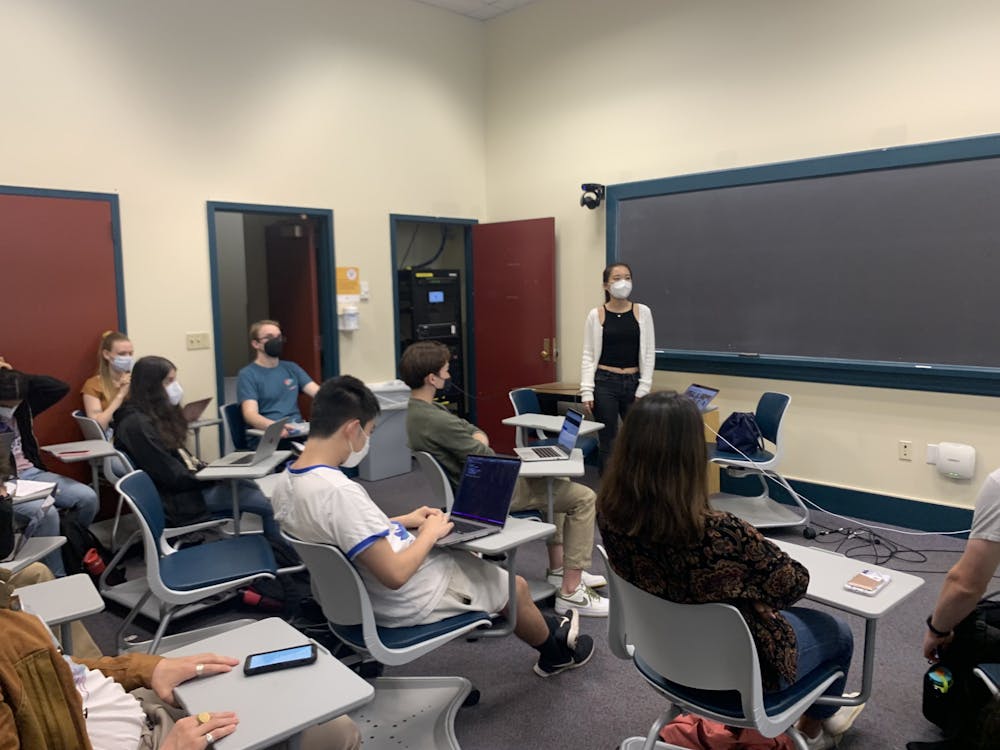The Undergraduate Council of Students introduced a resolution calling on the University to end the preferential treatment of legacy students in its admissions process at its meeting Wednesday evening. The Council also discussed whether resolutions and referendums are effective at creating change.
The resolution calling upon the administration to end legacy admissions is part of a broader movement led by education nonprofit EdMobilizer to address the role legacy status has in admissions, said Co-President of Students for Educational Equity and UCS Chair of Academic Affairs Zoë Fuad ’23.5.
The resolution would call upon the University to “end legacy (admission) preferences for children of Brown alumni … fully disclose all information regarding the acceptance rates for legacy applicants … fully disclose both the formal and informal benefits provided to legacy applicants” and create a committee that will “review and adjust admissions policies” annually, according to the text of the resolution.
Informally or formally treating legacy applicants differently “causes huge inequities in our admissions systems because it gives an edge to the descendants of Brown alumni, who are predominantly white and wealthy,” Fuad said.
The Council will have the option to vote on the resolution at next week’s general body meeting. Alternatively, UCS could decide to table the resolution to leave time for clarification and discussion.
A potential reason to delay the vote would be to give members the opportunity to have questions answered by Dean of Admission Logan Powell, who will be attending the Nov. 10 Council meeting, said UCS President Summer Dai ’22.
On the other hand, voting on the resolution next week could be a way to induce the Corporation — the University’s highest governing body, which will meet later this month — to begin conversations around legacy admissions, Fuad said.
“The Corporation is meeting now (and) I don’t want this issue to fall through the cracks,” she added.
Also at the meeting, a general body member proposed creating another resolution in response to the poor working conditions in University dining halls previously reported upon by The Herald.
Council members were supportive of finding ways to advocate on behalf of Brown Dining Services workers but questioned how effective another resolution would be at creating change.
“Having so many resolutions pass with such overwhelming support” can cause administrators to be unclear on what UCS is prioritizing, said UCS Vice President Sam Caplan ’22.
It is “weird and also very inefficient to use (referendums) as a polling mechanism,” Ricky Zhong ’23 added. “It makes more sense for us to … keep (referendums) for things we are close to being able to act upon.”
When Caplan and Dai asked administrators how to make resolutions and referendums more impactful, the most frequent advice was for the Council to engage with issues over longer periods of time, Caplan said.
One way to create change is to have more direct conversations with administrators — such as the upcoming conversation with Powell — rather than simply calling on them to act, Dai added.
Administrators are “people, too, and sometimes having a conversation can be productive,” Caplan said.
While general body members mostly agreed that working more directly with administrators would be helpful, several also noted that the Council’s persistence with resolutions could be improved.
“I think in some cases, it is about our own follow-up,” Fuad said.
Referendums may not get acted upon partially because many are introduced and voted on during the spring elections, which take place toward the end of the academic year, said Chair of Equity and Inclusion Jai’el Toussaint ’22.
Also at the meeting, the Council voted to pass the Voting Efficiency Amendment, giving UCS the option to vote on issues the same day they are introduced. The amendment is intended to make the Council more efficient, The Herald previously reported.
The Council also voted to pass an amendment to add the Class Coordinating Board to the Student Government Ethics and Accountability Board and the amendment to establish a set of Hybrid Rules of Procedure, both introduced at last week’s general body meeting.





